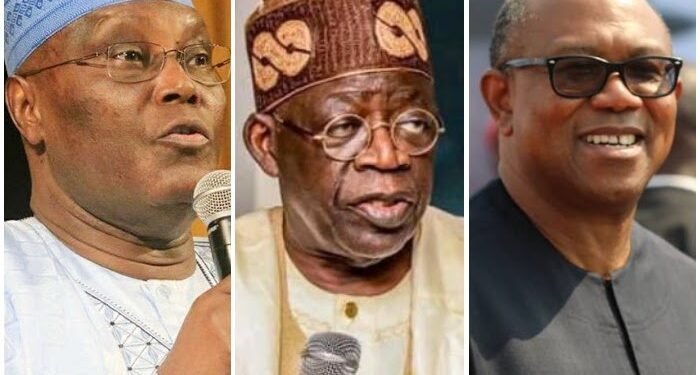We cannot play possum about it. Unity has remained a reverie, and an elusive expedition for Nigeria. We long for it, but we cannot reach it because we are not willing to work at it. We are not ready to tear down the iron curtains of ethnicity and religion. We are not ready.
It is a sheer pursuit of a will-o-the-wisp to assume or suggest that any single leader can unite Nigeria without commensurate efforts of citizens to the cause. To unite Nigeria, there is a place for leadership, and there is a place for followership. Uniting Nigeria will involve Nigerians from all strata.
The place of leadership in achieving unity in Nigeria is the place of personal example. Leadership by deed not just by words. The leadership demonstrating the highest level of objectivity, fairness and probity in dealing with Nigerians regardless of religious or political persuasion or ethnic background. The leadership showing sufficient inoculation against the contagion of religious and ethnic bigotry and exclusivism.
Where the leadership betrays prejudices, the followership sunders. The leadership is doomed to be assailed by a phalanx of discontents when it ignores the elements of inclusion.
The place of leadership in forging bonds of communality is the place of purpose and deliberateness. The leadership must be very deliberate in managing diversity and in fostering kinship among variegated people. Nation building cannot be left to chance or to the whim of anyone. There must be purposive plans and actions towards uniting the people.
There must be a willful policy and programme – even if it means setting up an instrument like a Unity Committee or Commission with pragmatic targets – among other considered options.
The leadership needs to address the issue of ‘’ethnic origin and identity?’’ Am I a Nigerian because I am Igbo? Or Am I a Nigerian by virtue of my birth and allegiance to my country? The truth is most ‘’citizens’’ submit to their ethnic nationalities rather than to Nigeria. They derive their identity not from Nigeria but from their ethnic stock.
To whom do we owe allegiance – our tribe or Nigeria? The reality is some of us, if not most, define our existence and identity from a tribal standpoint. We think in tribal amplitude and act in protection of the tribe. Our tribe comes first; we steal, fight and even kill for the tribe. The nation as an entity is split into disparate collections of kinfolks with unrequited loyalty. This is the trouble with Nigeria. The state is perpetually slaughtered for the tribe.
We need to build a Nigerian identity. All ethnic nationalities must be willing to surrender their individual identities to a Nigerian identity. This does not imply discarding our individual culture, tradition and heritage, but embracing an expansive identity for the survival of our country. Our potpourri of cultures, tongues and tribes makes us a uniquely beautiful country. The divergences, clustered like the magnificent colours of the rainbow, should be our strength and not a source of persistent conflicts.
Giving up the tribe means putting the interest of the nation first; it means acting on the philosophy of the monolithic whole as against group agenda; it means eschewing divisive utterances and actions; it means accenting our strengthens and areas of convergence rather than promoting discord and points of divergence; it means embracing our common identity as Nigerians and consigning the tribal identity to secondary relevance. It means being Nigerian.
Can the presidential hopefuls – Bola Tinubu of APC; Atiku Abubakar of PDP, and Peter Obi of Labour Party – unite Nigeria?
I think Tinubu has shown by his antecedents, in words and deeds, that he is of the nationalist phylum but with a surfeit of understanding of the imperativeness of building a nation on the back of subnational development, responsibility and self-reliance. He has on different occasions suggested ways Nigeria can better organise itself as a federation and manage its diversity. He once said: ‘’When we unite and not untie, we build on an existing maxim of ONE NIGERIA by describing that ONENESS as the fabric of a larger society S.E.W.N. (South East West North) together.’’ Tinubu has a robust matrix of associates and supporters across Nigeria’s geopolitical zones. And his approach to national matters has been plural without sectional or religious affectations.
Atiku’s campaign is foregrounded on ‘’One Nigeria”. The PDP presidential candidate is known to be expansive in outlook, and with a network of associates across Nigeria. Atiku has no history of sectional or religious bias. And he has remained nationalistic in disposition through the years.
But beyond the personality type and depositions of these candidates, uniting Nigeria will need more than the ‘’body language’’ of the leadership. It will take deliberate effort, personal example and a clear strategy.
Uniting Nigeria is hard labour, but a task that must be done.
ABOUT THE AUTHOR
•Nwabufo aka Mr OneNigeria is a writer and journalist.










